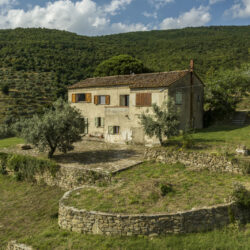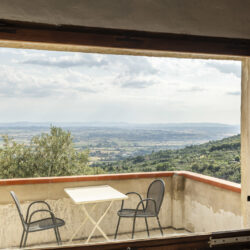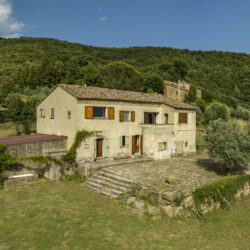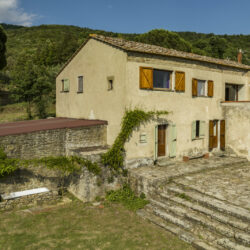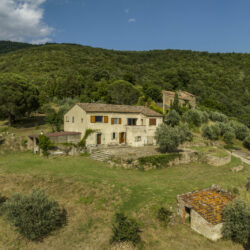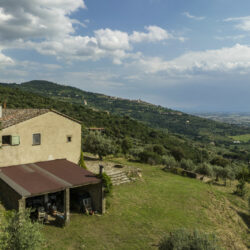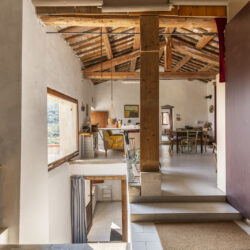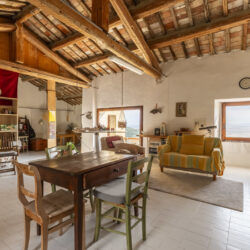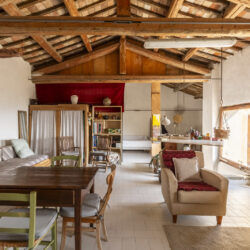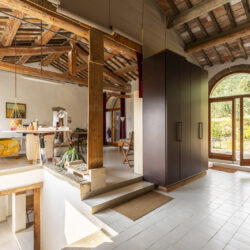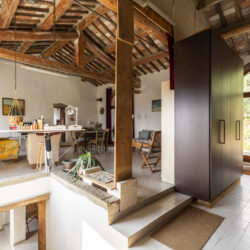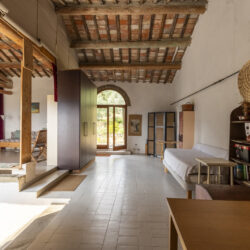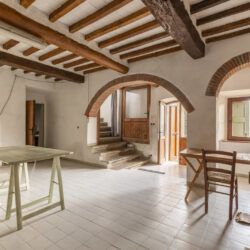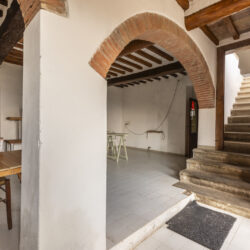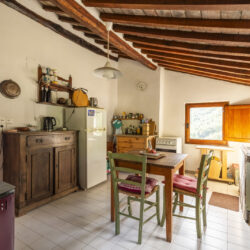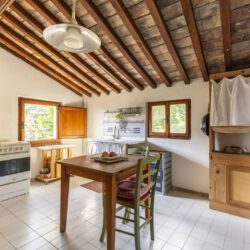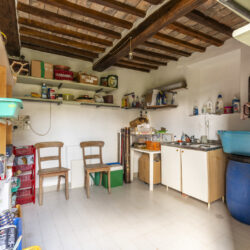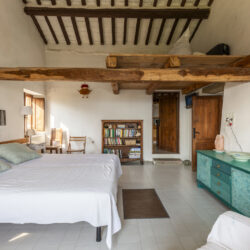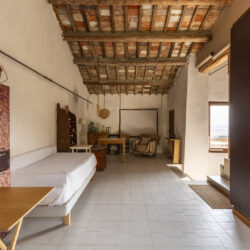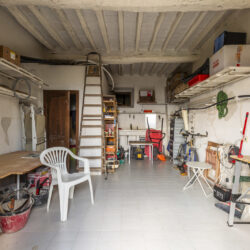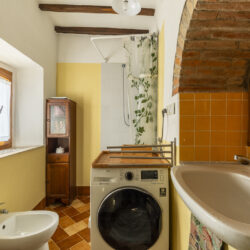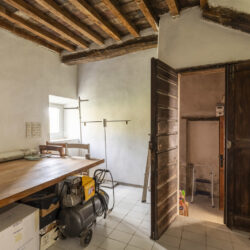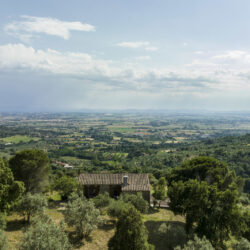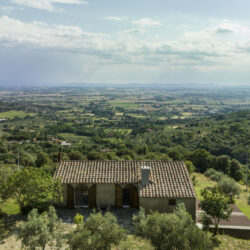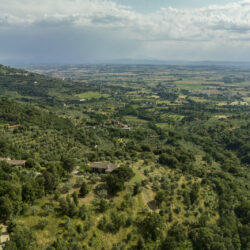ITALY, TUSCANY, AREZZO, CORTONA
DRONE:
Farmhouse of about 200 sq m with open layout on panoramic hill near Cortona with land.
Description
The farmhouse is located in an extremely panoramic area on the hills of Cortona.
It is on 2 floors for about 200 sqm, and is composed as follows:
Ground floor: large open plan area with large panoramic windows overlooking the valley and a height of over 4 meters.
From this area there is access to the terrace, and rooms currently used as a bedroom and kitchen.
There are many French doors that allow the outdoor space to be experienced easily in the warmer months.
A stone staircase to the basement which is a room with brick arches, a recently renovated shower room and the first cellar.
There is external access to two more rooms used as cellar/laundry and woodshed/technical room.
A final cellar connected to the farmhouse leads to the outdoor shed.
Outbuildings
On the land there are two outbuildings to be rebuilt that offer good cubic capacity to create a garage, small outbuilding or other volumes.
Condition and finishes
The property is in good condition, renovated in the 70s/80s. However, it needs work on finishes and systems, as it has no heating system (at the moment it has wood and pellet stoves).
The farmhouse offers many possibilities for renovation in the interior.
The exterior is currently plastered, but it can be renovated by bringing back the original exposed stone.
The roof was redone in the 1970s but can be improved and insulated.
The high ceilings have exposed wooden beams and terracotta tiles. The floors are tiled.
There is a working property well for the supply of water
Outdoor space
The property has 2200 sqm of garden and an additional 15,600 sqm of land divided between olive grove, forest and chestnut grove. About 200 olive trees are present.
Potential uses
The farmhouse differs from the classic Tuscan style by having windows and interior spaces out of the ordinary, ideal for creating modern and bright environments.
The property is perfect for use as a first or second home being located in a quiet and panoramic area. Given the proximity to the town of Cortona it is also ideal as a tourist rental.
Location & Lifestyle
Situated in a dominant position overlooking Cortona and the valley, this historic property enjoys peace and privacy. 10 minutes from the hamlet of Camucia and 13 from the historic center. The road leading to the property is about 2 km (both paved and unpaved), in some places steep as is typical in the area. Other tourist villages in the area such as Passignano sul Trasimeno and Montepulciano are a 30-minute drive away. The A1 highway connection is about 25 minutes away, the Siena-Perugia freeway connection is 15 minutes away, plus the train station with direct connections to Rome and Florence is 10 minutes away.
































